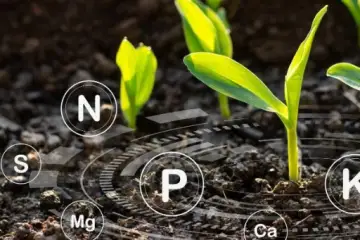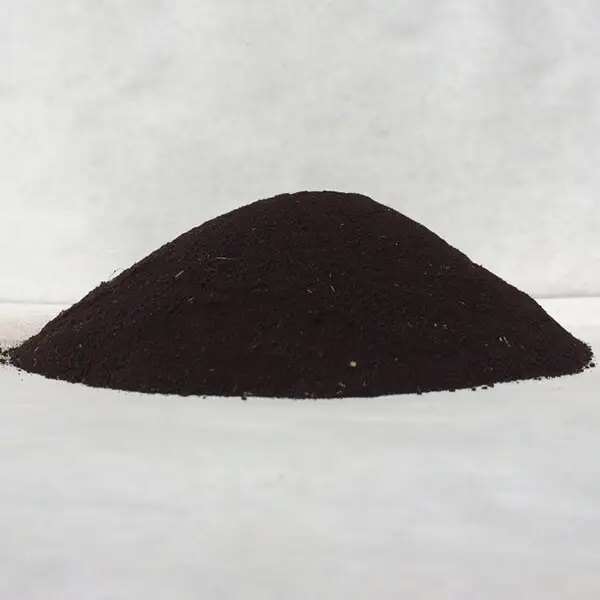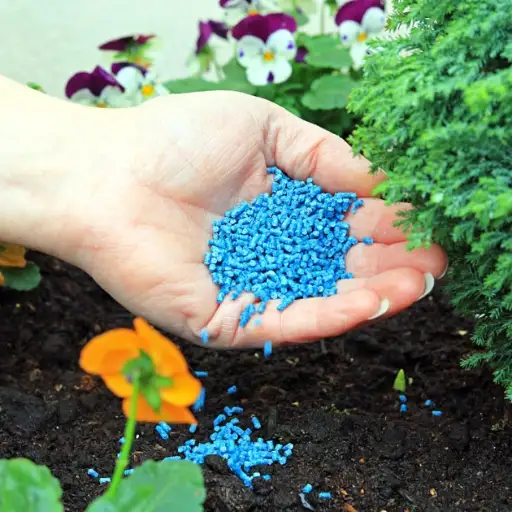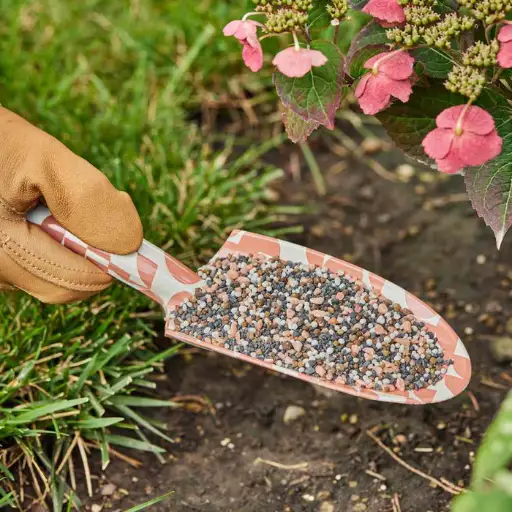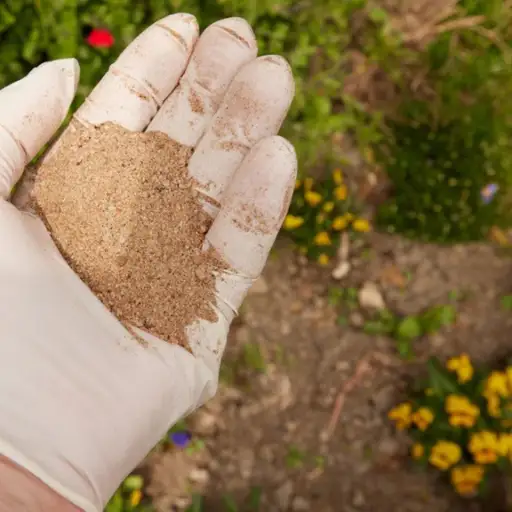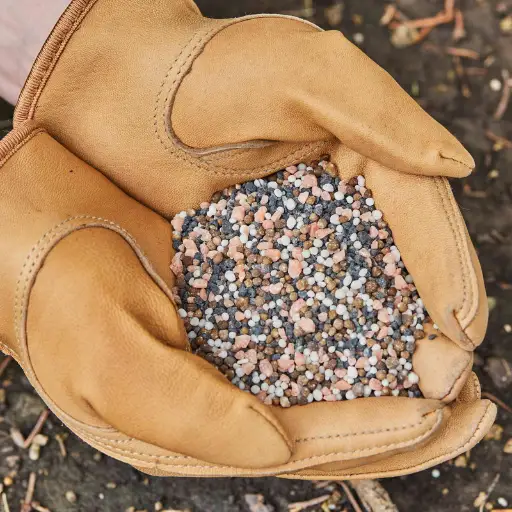Introduction to Organic Blood Meal Fertilizer
Organic bloodmeal fertilizer is an extremely high-nitrogen organic that increases organic garden soil fertility and produces vigorous plant growth. Made from dried cows blood, the fertilizer is popular with some gardeners because it is highly effective and fast acting, especially when utilised in depleted nitrogen soils.
The practice of using blood meal as a fertilizer extends at least as far back in agricultural history as the practice of eating animals. Farmers have long understood that no part of the animal harvested for food was wasted, and that blood meal is a common naturally-occurring by-product of farming that had been used in farming for hundreds or perhaps even thousands of years. Everyone knew that blood meal contains a lot of nitrogen and makes leafy plants and vegetables green up and grow quickly. A lot of organic gardeners have depended on it.
‘Organic blood meal fertilizer supplies plants with an immediately available form of nitrogen that is required for vegetative growth,’ says Alice Martin, an agronomist, writer, and reviewer of scientific literature on plants. ‘It’s very valuable especially for crop production where synthetic fertilizers cannot be used.’ It also then recycles a by-product that would otherwise go to waste and help the environment.
As we get deeper into the organic blood meal fertilizer, we’ll reveal exactly how it can benefit your crops, what kind of nutrients it provides to your plants, and the best ways you can use it to strengthen your soils and empower your plants.
Nutritional Content and Properties
Organic blood meal fertilizer is valued primarily for its high nitrogen content: the ability of a fertilizer to supply nitrogen is the single most important factor to consider when buying one. It can make up as much as 12 to 15 per cent of the weight of blood meal. In fact, that’s why it’s considered one of the richest sources of organic nitrogen that the gardener can use.
Nitrogen is especially important to photosynthesis, by which plants convert light energy into chemical energy. A dense nitrogen load is essential for leafy plants, and the rapid growth of such plants contributes to garden greens and vegetables. ‘Nitrogen is one of the major components of chlorophyll, the molecule plants use for photosynthesis, and it’s also one of the major components of amino acids, the building blocks of proteins, so without protein, those plants will die,’ says Henry Clarkson, an expert in the science of soil.
In addition to nitrogen, organic blood meal fertilizer provides small amounts of phosphorus, potassium and other nutrients if they are present in the blood to start with. These nutrients are important to plant health in amounts greater than those provided by bloodmeal: For reference, we will name the elements in the periodic table in alphabetic order:
It is involved in the formation of roots, flowers and seeds; as well as in the transference of energy throughout the plant.
Potassium regulates plant metabolism, and affects water pressure regulation inside versus outside of plant cells, leading to an upregulation of hardiness, and, importantly, resistance to plant diseases.
Its quick availability makes a blood meal one of the best products to correct nutrient deficiencies quickly. However, its quick-acting nature requires spending some time before applying it correctly. It can literally scorch plants if applied too high – something that can happen when ammonia levels are high and the blood meal breaks down too fast. ‘Apply as a side dressing, or lightly incorporate into the soil to avoid contact with roots,’ Dr Clarkson says.
A basic knowledge of the organic nutrient profile of blood meal fertilizer, for instance, helps the gardener to better control the amount of fertilizer being applied to plants at any particular time, thus avoiding nutrient burn by providing the correct amount of nutrients for vigorous growth while the soil is still warm and moist. In this manner, the application of a balance of nutrients to the garden contributes to its vitality.

Benefits of Using Organic Blood Meal Fertilizer
Organic blood meal offers a number of advantages to the gardener and farmer in terms of soil health and plant health, though these are easily overlooked because they extend far beyond nutrient delivery. Drawing on some of the ideas about spiritual essence mentioned a few paragraphs ago, these advantages can fundamentally change many aspects of plant development and soil ecology.
Enhances nitrogen content in soil
Nitrogen is one of the most important growth nutrients for plants, especially for fast-growing and leafy garden crops that require large quantities of this nutrient to thrive. An all-organic blood meal fertilizer is a fast source of nitrogen and can quickly correct a nitrogen deficiency in the early growing season. This can be particularly useful for growers of fast-growing crops where adequate nitrogen uptake early in the season is crucial. Susan Mitchell, research associate at the Rodale Institute and author of The Organic Fertilizer Solution (2010), says that the quick nitrogen release from the blood meal component helps plants ‘get off to a good start, which in turn means a healthier plant throughout the season’.
Promotes rapid growth of plants and vegetables
The immediate advantage of added nitrogen is a faster rate of plant growth. Anyone who has thrown some organic blood meal fertilizer at their garden knows that, indeed, plants tend to green up more quickly as well as grow more vigorously. This is most useful for crops if one has a relatively short growing season. However, it is also useful for crops that one is replanting after a mid-season harvest.
Improves soil structure and fertility over time
Though the nitrogen it contributes stimulates plant growth, organic blood meal fertilizer also provides a source of organic matter. Because it is organic, not inorganic, this measure improves soil structure by improving aeration, increasing soil water-holding capacity and encouraging soil health-promoting microorganisms. The physical and chemical changes wrought by these processes, taken over time, could lead to more fertile soil and greater plant health. ‘One key to sustainable farming is adding organic matter to the soil,’ Mitchell says, ‘which builds it up and produces fertility naturally, from the soil itself, in ways that promote healthy plants and reduce the need for chemicals.
These advantages make organic blood meal fertilizer a powerful plant and soil-friendly, natural tool for those who garden and farm to maintain and enhance the health of their plants and soils. And it’s particularly useful in quickly both correcting nitrogen deficiencies (presently) and contributing to general, long-term soil health. As we continue to learn better ways to use it, we will have more information at our disposal about how we can best leverage the full range of advantages in organic blood meal fertilizer to positively impact any organic gardening projects we might be considering embarking on.
Best Practices for Using Organic Blood Meal Fertilizer
In short, by following best practices with regard to application rates, timing and methods, the beneficial effects of the organic blood meal fertilizer can be maximised, while the negative effects of its perpetuating the practice of torturing chickens for eggs can be minimised.
But there is never any reason to apply more blood meal than the plants need the next year at this time. The recommended rate is very much a function of the soil and the plants it supports, but 10 to 12 pounds of organic blood meal per 1,000 sq ft is a reasonable starting guideline for garden beds. As Laura Green, a research and extension associate at Dartmouth College’s Sustainability Institute, who advises farm owners on soil-and-plant fertility issues (and who holds a PhD in soil science), says: ‘I tell people that the first thing they should do is get a soil test.
Soil test to determine if you are in the low- to normal- or high-nutrient range.’ A soil test identifies the nutrient profile of a piece of soil, and reduces the risk of overloading the system with nitrogen. Too much nitrogen fertilizer, including natural sources, will burn the plants.
Which practice depends on how the blood meal is applied. Even application throughout the base of the plants is ideal. Contact with stems and leaves should be avoided, because burns can result. Working the blood meal into the top few inches of soil also slows the release of nitrogen and reduces the risk of volatilisation (the nitrogen is lost as a gas).
Timing is also an issue – you should apply the organic fertilizer of blood meal at the beginning of the growing season when plants are actively growing foliage and need the nitrogen the most, or near the end of the dormant season for perennial plants that will begin to bud.
Although organic blood meal fertilizer is great at raising nitrogen levels, it should be part of a general fertilisation scheme that gets you all important nutrients. If you mix blood meal with other organic fertilizers, you can get a more balanced mixture. Adding another type – say, bone meal to boost phosphorus or green sand or potash, to add potassium – can make for a better-balanced nutrient feeding. ‘Designing your own custom blend of organic fertilizers for your garden, according to your crops needs, can help to achieve a better balance in growth and avoid nutrient deficiencies and excesses,’ adds Dr Green.
Using organic blood meal fertilizer in this way, according to all of these best practices, will strengthen plants and enrich the soil without damaging soils, waterways or atmospheres in the way synthetic fertilizers do. Such careful tending to plants’ needs supports environmental health by keeping soils productive and free from chemical run-off.
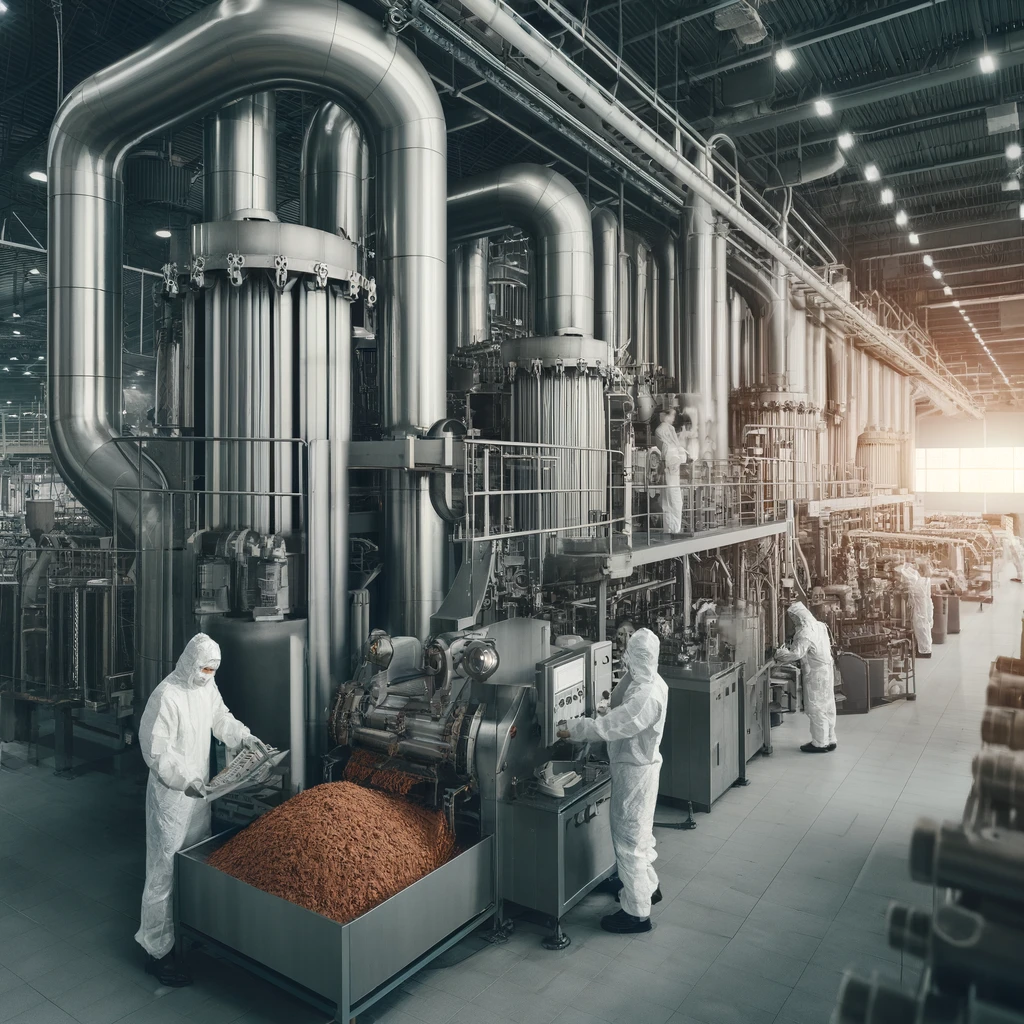
Safety and Environmental Considerations
To safely use organic blood meal fertilizer, gardeners should learn about its safety guidelines that will help them apply the manure in a safe way that will not harm nature and garden handlers, but also benefit plants.
Because it’s made from animal blood, organic blood meal fertilizer must be stored in a cool, dry place away from food and children and pets, and used with a pair of rubber gloves and a dust mask to make sure you don’t inhale any fine particles or get in direct contact with the material. ‘Always keep blood meal sealed and stored so it remains a safe product and doesn’t become a vector for disease or attract unwelcome pests to your storage area,’ advises Dr Anne Carter, an educator of safety issues about agricultural products.
While the production of organic blood meal fertilizer is still less environmentally sustainable than home composting or crop rotation, its use is dramatically better than synthetic fertilizers. Blood meal is a byproduct of the meatpacking industry, and its recycling in itself is an ecological plus, otherwise it would end up in landfill, and in the process of use there is no accumulation of these materials in the environment. Unlike synthetic fertilizers, which are chemical compounds, blood meal rapidly and completely biodegrades, limiting problems with pollution of water sources and soils.
But because it is rich in nitrogen, application requires precision to prevent nitrogen runoff, which can cause eutrophication of water bodies, in which an abundance of nutrients causes algae growth that depletes water oxygen, killing aquatic life.
Along with following current safety guidelines, gardeners and farmers can be reassured that using organic blood meal fertilizer is healthier for both the environment and the soil. Recommended safety guidelines, including wearing a dust mask or respirator, and avoiding inhaling excessive amounts of dust, help gardeners better manage the use of blood fertilizer in their garden. Understanding the true environmental benefits of using an organic blood meal fertilizer will help gardeners and farmers alike make informed decisions that improve plant growth while fostering sustainability, thereby protecting the environment one garden and farm at a time.
Conclusion
By using organic blood meal fertilizer for gardening and agricultural purposes, we aim to bring back something more natural and sustainable as a plant nourisher both for our plants and the earth. The path to comprehending and employing organic blood meal helps us to understand the importance of this organic fertilizer in nurturing healthy plants, creating a healthy soil, as well as participating in a green gardening ethics.
As discussed above, some obvious benefits of using organic blood meal fertilizer include boosting soil nitrogen levels, leading to healthy and vigorous plant growth, and contributing to higher levels of organic matter and healthy soil structure. In summary, organic fertilizer provides the environmental benefits that synthetic does not. As we have shown, it offers a certain way towards reducing ecological footprints and improving the quality of our environment in sustainable agricultural practice.
Organic fertilizer methods such as blood meal not only help plants grow in the immediate season, they also promote the longevity and fertility of the soil to prepare and plant in future seasons. Organic blood meal is a great helping hand for gardeners who value sustainable and organic growing practices.
In doing so, they, like us, enter a singular cycle of sustainability that honours the earth’s natural order, provides balance, and creates fertile ground ripe with the bountiful harvests of tomorrow. Use this guide to ensure that your organic blood meal can enrich your garden, too.
I found some authoritative sources :
- PubMed provides access to numerous studies and publications on various organic fertilizers, including blood meal. It’s a valuable resource for understanding the scientific basis behind the efficacy of organic fertilizers and their impact on soil and plant health.
- The National Center for Biotechnology Information (NCBI) offers a broad range of scientific information on biotechnology, including agricultural applications like organic fertilizers. This could be a useful platform to find more detailed research articles or genomic information linked to the use of organic blood meal as a fertilizer.


